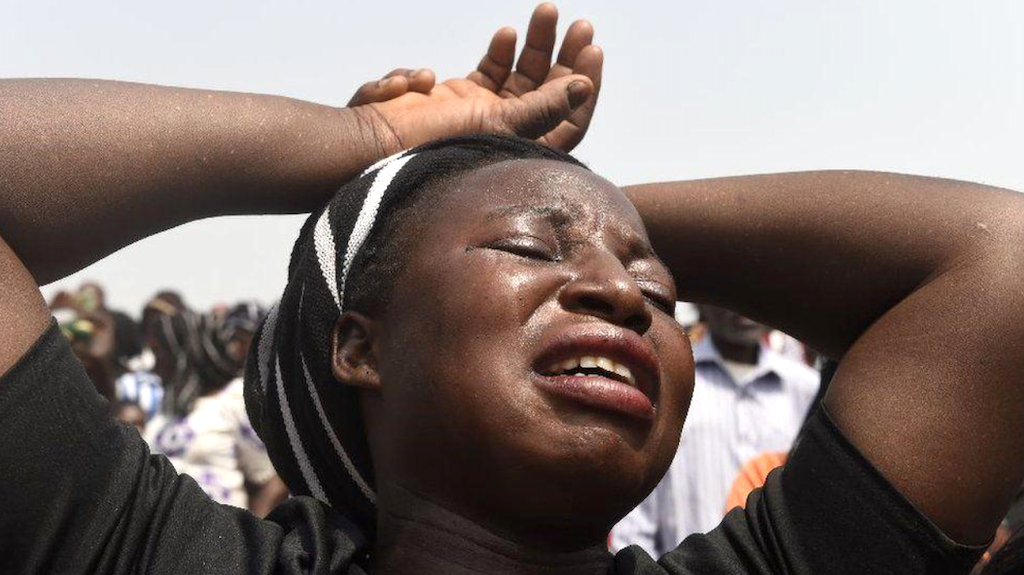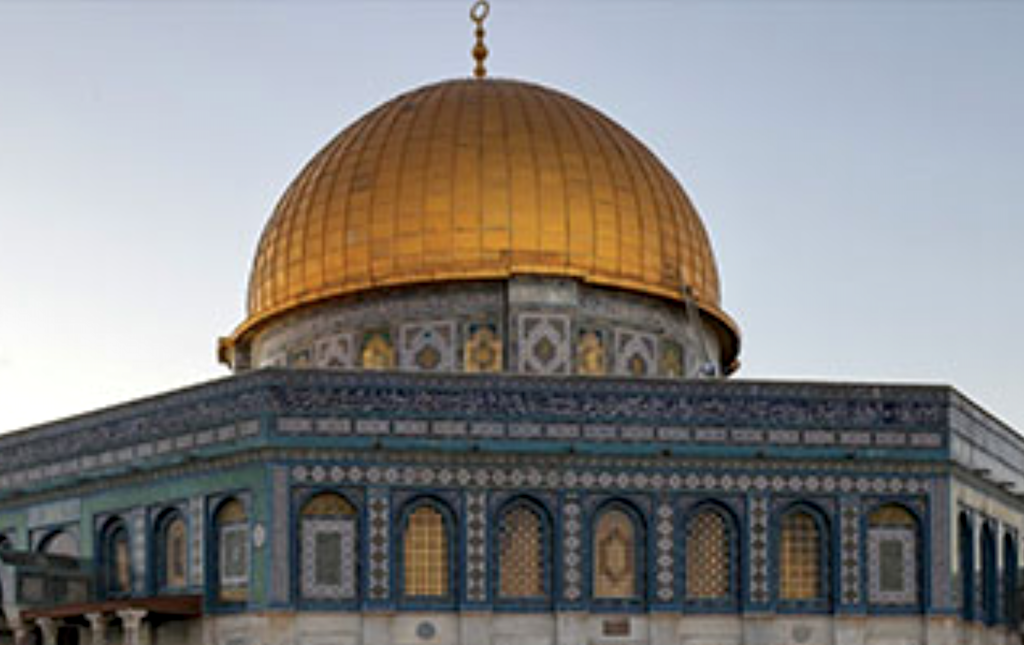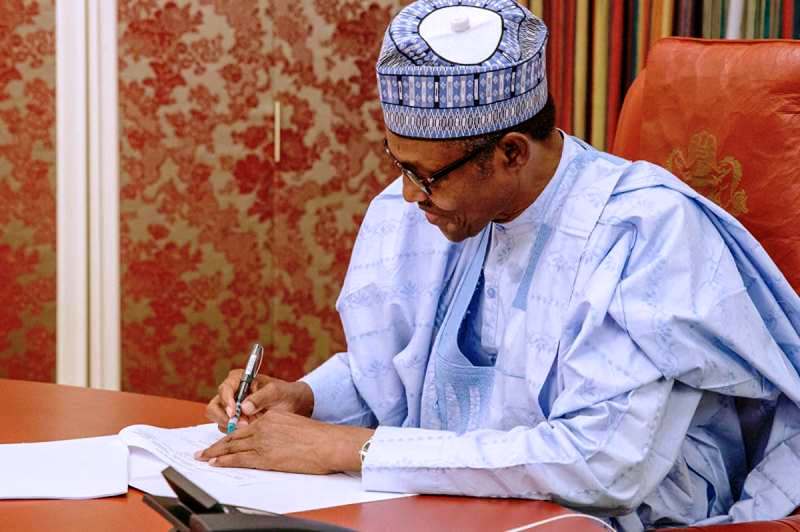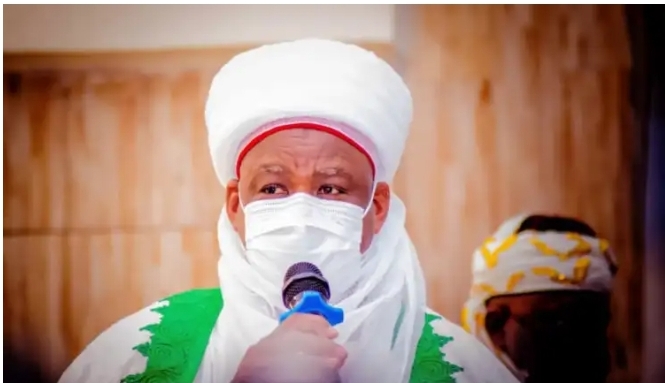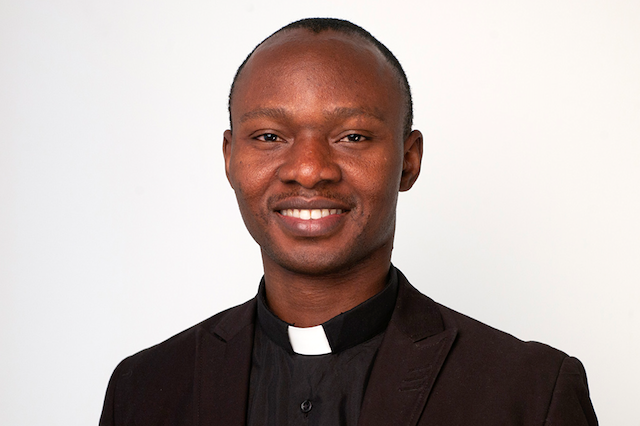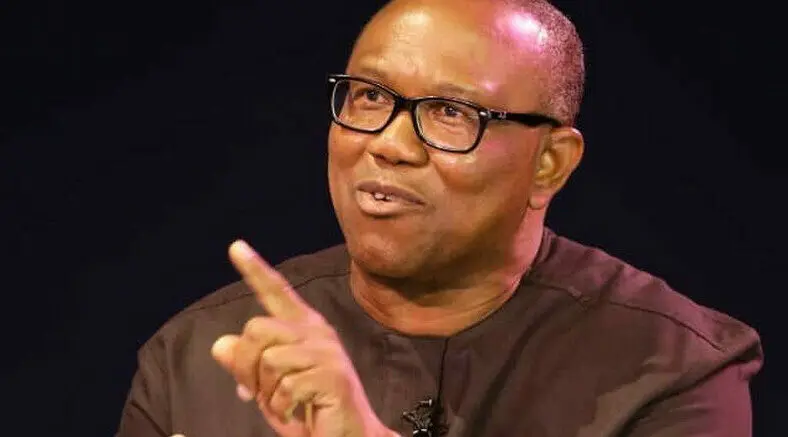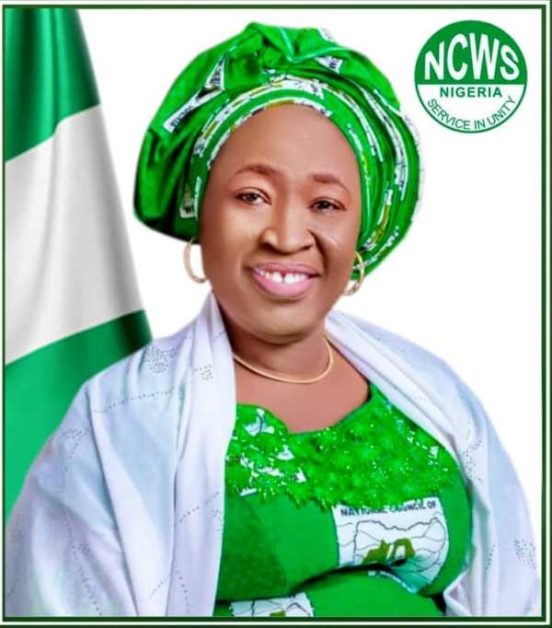Nigeria, a country with a constitutional guarantee for freedom of religion, is seeing a continuous rise in religious violations that threatens the rights of its citizens, especially religious minorities.
Religious intolerance and restrictions on religious freedom in Nigeria manifest in the enforcement of blasphemy laws, abduction, forced conversion and marriage of Christian girls, but also extend to other areas such as the violent conflicts between the predominantly Muslim Fulani herdsmen and Christian farmers.
This has left a lasting impact on the lives of both men and women. However, women and girls have been the ones who bear the brunt of this heinous crime. While men and boys also experience religious discrimination and persecution, the magnitude of suffering endured by women and girls cannot be ignored.
The plight of women and children in relation to religious freedom violations is particularly dire, especially when religious restrictions intersect with cultural implications.
This report highlights the distressing reality of girls who are forcefully separated from their families, coerced into religious conversion, and subjected to forced marriages and motherhood.
This heinous crime, which not only violates religious freedom but also the human rights and dignity of victims, has increased in recent years, and many families have been left traumatized and devastated.
Stolen innocence and the harrowing journey into forced conversion
In January 2018, Jennifer Shagari, a 16-year-old SS1 student found herself in the merciless grasp of her Muslim abductors who forcibly converted her to Islam. She was on her way home from school in the Soba area of Kaduna State when a young Muslim boy ambushed and coerced her into running away with him.
He reportedly took her to his community leader and proudly announced that he had brought an Islamic convert. The community leader subsequently took her in and assigned her a supposed parent.
After a week, Jennifer’s parents were contacted and told not to continue the search for their daughter, as she had willingly converted and would be married off to a man of her choosing. This news left her parents distressed and completely shattered.
Prior to this time in 2016, Jennifer’s father Yohanna Matthew Shagari had experienced a similar distressing incident when his younger sister, Blessing, was abducted and forcibly converted to Islam by certain individuals from the Muslim community in Pambegua, located in Kubau LGA, in Kaduna State, but was able to secure his sister’s release after she had spent 21 days in captivity.
Similarly, it took the combined efforts of her parents, some members of civil society and the Hausa Christian Foundation (HACFO) to locate and rescue Jennifer 11 months after her kidnap, amidst threats to her family. Her father had been viciously beaten almost to the point of death in one of the encounters.
However, things would not be the same again. Jennifer, 17 years old at the time of her rescue, was now a mother. She had given birth to her baby two months before she was discovered and had to be rehabilitated to enable her to continue with her education.
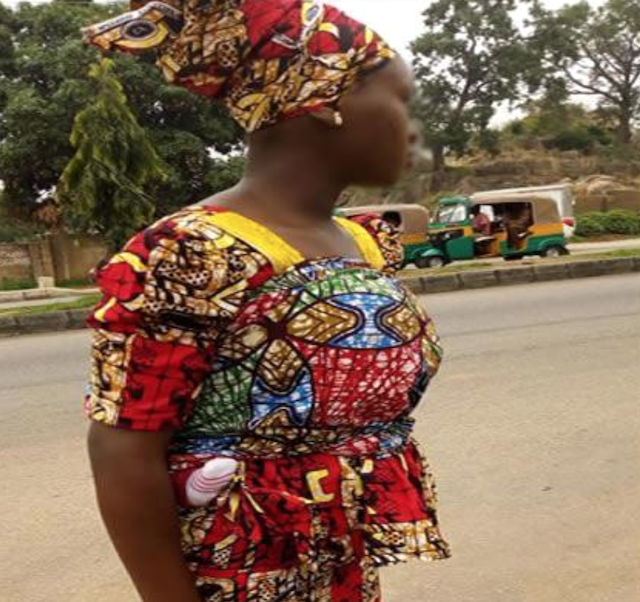
While in rehab, a Muslim cleric from Zaria, Mallam Abdullahi Baba Abdullahi of JIBWIS, organized a group of over thirty Islamic militants and launched a late-night raid on her residence.
The militants, armed with a public address system, forcefully demanded her return and threatened severe consequences. The harrowing incident unfolded until approximately 2 a.m., at which point they realized Jennifer was not present and subsequently retreated back to Zaria.
Tragically, Jennifer’s baby fell ill and passed away three years ago, but Jennifer returned to school and has now graduated from secondary school, but her future remains uncertain as her struggling parents cannot afford to sponsor her to get a university degree.
Parmata Misari, a 14-year-old student at Women Teachers College Zaria, was abducted in a conspiracy involving her school matron, a teacher, the gateman, a bike man, and an Islamic cleric.
She was falsely informed that her mother was sick and was taken to be forcibly converted and married off. Parmata’s memory went blank after she was allegedly given dates fruits (popularly known as “dabino” in Nigeria) to eat, and she remained captive for a month until she was eventually freed.
The culprits were suspended by the school authorities after an investigation revealed their involvement and Parmata has since graduated and is doing well.
In yet another incident, a 14-year-old girl, Esther Duniya, was abducted from school and forcefully converted to Islam by the village head of Dorayi in Kaduna State, sparking outrage and raising concerns about the ongoing persecution of Christians in the region.
Esther remains in captivity under the custody of Hakimin Makarfi in Makarfi Local Council. The Hausa Christians Foundation (HACFO) and the Human Rights Writers Association of Nigeria (HURIWA) have called for Esther’s safe release and condemned the forced conversions of young Christian girls.
HURIWA has promised to sponsor a bill in the National Assembly to criminalize such acts. The matter has also been brought to the attention of the Kaduna State government, the Attorney-General of the Federation, and the National Anti-Human Trafficking Agency.
A lawyer practicing in Kaduna State, Abishag Sambo, who has helped in the rescue and rehabilitation of some of these teenage girls, told our reporter that poverty was driving religious violations in Nigeria.
“Christian girls from poor backgrounds are usually the target. They are lured by fancy material things and promised a better life. Their parents too do not have the resources to withstand their abductor,” Sambo said.
Some of the latest series of abductions by the militant group has particularly targeted schools, particularly those educating girls. The kidnapping of over 200 Chibok girls in 2014 marked a significant turning point in Nigeria’s security landscape, as it led to subsequent kidnappings of students at different times across the country.
Following the Chibok incident, similar kidnappings occurred including the Dapchi school abduction in 2018, where over 100 girls were taken by Boko Haram and later released, as well as the Kankara school abduction in 2020, where over 300 boys were kidnapped and subsequently released after negotiations.
On March 21, 2021, more than 300 schoolgirls were kidnapped by Boko Haram militants from the Government Girls Secondary School in Jangebe, Zamfara state. These incidents often involve armed assailants who storm schools, overpower security personnel, and abduct students, subjecting them and their families to unimaginable trauma and anguish.
In Nigeria, religious restrictions have cultural undertones, and women are often given off in marriage and compelled to adopt the religion and denomination of their husbands, sometimes against their will.
Women who refuse to comply with this tradition often face stigmatization, discrimination, and even violence.
In 2018, the Igando Customary Court in Lagos state ordered the dissolution of the 21-year-old marriage between Rabiu Olayiwola and his wife, Rachael Olayiwola after the then 41-year-old mother of seven, reneged on her promise to convert to her husband’s faith, shortly after their marriage, and efforts by the court and family to reconcile the couple had failed.
Killings of accused witches
The alarming phenomenon of witch persecution in Nigeria, particularly in Akwa Ibom, Cross River, Rivers states, and other regions, continues to claim innocent lives and perpetrate gross human rights violations.
Children who are accused of witchcraft are left homeless as their parents or guardians abandon them to roam the streets, while others face unimaginable cruelty in attempts to extract false confessions. Regrettably, some pay the ultimate price without an opportunity to defend themselves.
Recently, in August 2022 the brutal torture and subsequent deaths of two widows, Martina Osom and Rose Akom, by youths in the Ebbaken community of Boje in Boki Local Government Area of Cross River State, highlights the severity of the issue.
The women, who were active members of the Catholic Church and had served their community, were accused of witchcraft based on a dream experienced by another woman. Despite vehemently denying the allegations, they were mercilessly beaten and tied up until their tragic demise.
A religious leader Simon Lucas in an interview with our reporter said these distressing cases emphasize the urgent need for Nigeria to address the deep-rooted issue of witch persecution.
“Efforts must focus on promoting education, tolerance, and human rights awareness to eradicate these harmful beliefs and practices. It is crucial for authorities, communities, and individuals to come together, reject witch hunting, and protect the innocent, upholding the principles of justice, compassion, and respect for human dignity,” he said.
Religious dress restrictions and the controversial actions of Hisbah police:
Religious dress restrictions have also emerged as a contentious issue in Nigeria, with a particular focus on the rights of Muslim women who wear the hijab. Across the country, there have been disturbing instances of discrimination against Muslim women based on their choice to don the hijab in various public settings, educational institutions, and workplaces.
One notable incident occurred on June 17 2022, when the Supreme Court granted approval for the use of hijab by Muslim female students in Lagos State. After a previous judgment by the Lagos State High Court in 2014 banned the use of hijab in public primary and secondary schools.
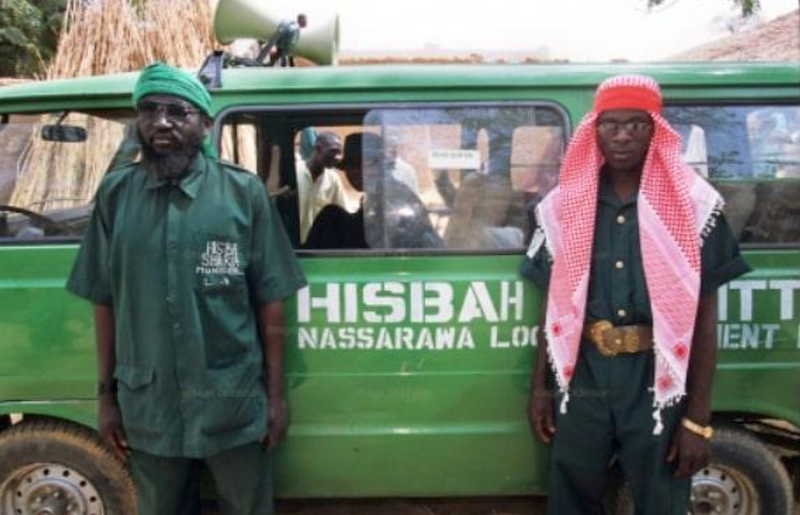
In recent times, the Hisbah police, a religious law enforcement agency operating in some states in Nigeria, have been involved in enforcing strict Islamic codes and regulations. These actions have raised concerns regarding human rights and gender equality.
Deborah Samuel, a Christian woman accused of blasphemy, was reportedly beaten to death by a mob in her home in Kaduna State on May 12, 2022, and her killers remain at large.
There have been several instances where the Hisbah police have targeted women for perceived violations of Islamic norms. In Kano State, for example, the Hisbah police have been known to arrest women for improper dressing, including wearing clothes they deem indecent. Such arrests have sparked debates about personal freedom and the right to self-expression.
In another case, in Zamfara State, the Hisbah police raided a hotel and arrested over 100 women, accusing them of engaging in “immoral activities.” The women were detained and subjected to various forms of punishment, raising questions about due process and the treatment of individuals under the law.
Religious conflict and attacks
Violent conflicts between Muslim Fulani herdsmen and Christian farmers in Nigeria’s northern regions have been persisting for an extended period, and have now spread to other parts of the country, resulting in numerous casualties and contributing to the alarming rise in food inflation.
The underlying causes of the conflicts include competition for land, grazing rights, and religious differences. These conflicts have intensified in recent times, leading to a deteriorating security situation and exacerbating ethnic and religious divisions within communities.
Several high-profile incidents serve as stark reminders of the brutal nature of the conflicts and their consequences. In 2021, clashes erupted in Benue State, resulting in the displacement of thousands of people and the destruction of villages. Similarly, in Plateau State, clashes between herdsmen and farmers have left scores dead and led to the displacement of local communities.
For example, more than 30 people were killed in clashes between herders and farmers in the state on May 16, 2023. Innocent civilians, including children, women, and expectant mothers, face ruthless attacks and slaughter at the hands of terrorists and ethnic militias.
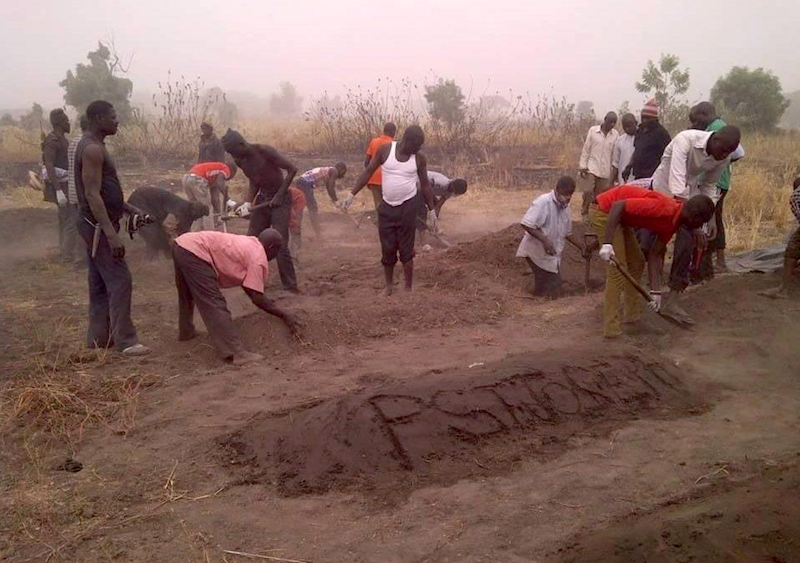
Another case that exemplifies this intersectional violence is the May 2022 attack in the predominantly Christian and Igbo-dominated southeast, where a pregnant Muslim Hausa woman and her four children were killed.
Reacting to the killing, Governor Charles Soludo of Anambra State said: “There are no targeted ethnic or religious killings in Anambra State. As a matter of fact, Anambra indigenes have suffered more casualties as a result of the unfortunate killings.”
A Socio-political analyst and public commentator Abdulrahman Abu Hamisu of the Centre for Political Research, Education and Development, told our reporter that the sense of impunity has given the perpetrators of religious violations the audacity to act contrary to the law.
“If religious violations are criminalized, and we go a step further to punish people who violate other people’s rights and religious freedom, then we will have a sane society,” Hamisu said.
These relentless attacks, reprisals, and counterattacks have created an atmosphere of fear and mistrust, leaving communities deeply traumatized and struggling to rebuild their lives.
Psychological and emotional impact
The psychological and emotional impact of religious intolerance on women and girls is a grave concern that extends beyond physical harm.
A psychiatrist practicing in Lagos State, Ijeoma Chidiebube said the effects of religiously motivated violence and discrimination can inflict significant psychological and emotional distress, leading to long-lasting consequences for the mental well-being and overall quality of life of victims.
A comprehensive report by the United Nations sheds light on the wide-ranging consequences of religiously motivated violence on the female population.
The report highlights the specific ways in which women and girls bear the brunt of these conflicts, enduring psychological trauma and emotional distress that significantly impact their lives.
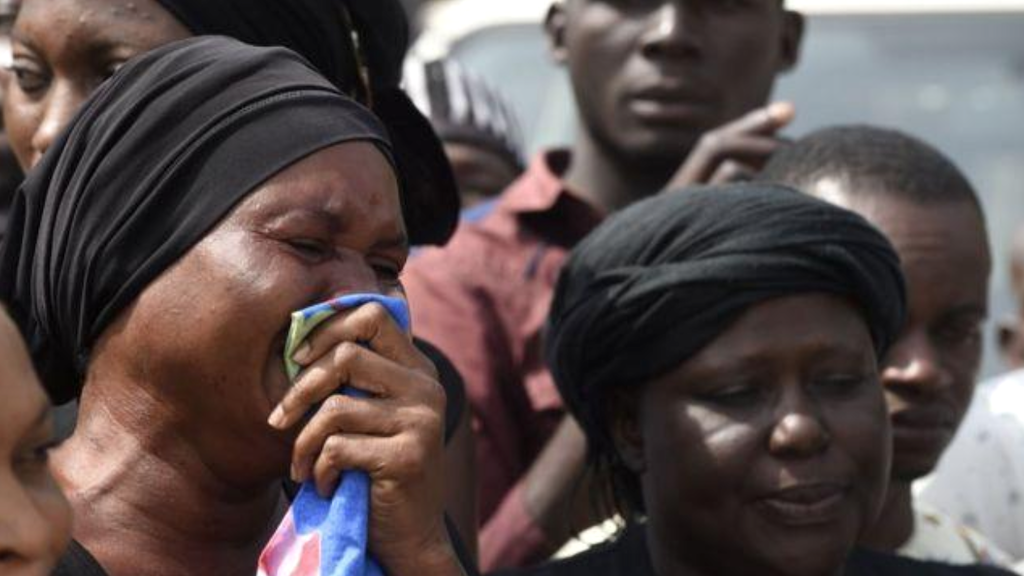
It also underscores that women and girls are frequently targeted due to their religious identity, becoming victims of physical and sexual violence, forced displacement, and arbitrary detention.
Chidiebube said these horrifying experiences not only cause immediate harm but also leave deep-rooted psychological scars, leading to anxiety, depression, post-traumatic stress disorder (PTSD), and a myriad of other mental health issues.
She added that to effectively tackle the psychological consequences of religiously motivated violence on women and girls, it is imperative to prioritize long-term solutions.
“This includes promoting gender equality, empowering women and girls, enhancing access to education, and dismantling the systemic barriers that perpetuate violence and discrimination.
“Mental health support and resources must be integrated into humanitarian responses to ensure the holistic recovery of affected individuals,” the Psychiatrist advised.
International recognition and recommendations
In Nigeria, civil society organizations, religious leaders, and governmental bodies are making efforts to raise awareness, enforce existing laws against gender-based discrimination, and develop comprehensive programs that address the root causes of religious violations.
However, on the international front, the United States Commission on International Religious Freedom (USCIRF) has consistently recommended that Nigeria be designated a Country of Particular Concern (CPC) due to severe violations of religious freedom.
The USCIRF has highlighted the Nigerian government’s failure to prevent or stop religiously motivated violence and hold perpetrators accountable.
In February, some United States lawmakers asked President Joe Biden to re-designate Nigeria as a country of particular concern after the country was taken off the list in November 2021.
Chris Smith, the New Jersey representative, said Christians bear the brunt of the persecution in the country and the decision to exclude Nigeria from the list was an “unjustified decision”.
“Last year alone, 5,014 Christians were killed in Nigeria, accounting for nearly 90 percent of Christian deaths worldwide as well as 90 percent of Christian kidnappings across the globe,” Smith said.
Similarly, the Human Rights Watch (HRW), an international non-governmental organization that conducts research and advocacy on human rights issues around the world, in its 2021 World Report, highlighted the Nigerian government’s failure to protect religious minorities and address religious violence in the country.
Systemic issues and inadequate government response
Notwithstanding, the Nigerian government has made efforts to address the issue of religious violations in the country. In 1999, the Nigerian Constitution was amended to allow for the freedom of religion, and the government has since established various agencies and institutions to promote religious tolerance and address cases of religious discrimination and violence.
For instance, the Nigerian Inter-Religious Council (NIREC) was established in 1999 to promote dialogue and understanding between Muslims and Christians in the country. Similarly, the National Human Rights Commission (NHRC) was created to investigate and address human rights violations, including those related to religion.
In addition, the government has enacted laws to protect the rights of religious minorities and punish individuals and groups that engage in religious violence and discrimination. For instance, the 2011 Terrorism (Prevention) Act criminalizes acts of terrorism, including those motivated by religious or ideological beliefs.
Hamisu also acknowledged that there were success stories which are underreported in the news. “In Adamawa state, the government has established a peace commission to dialogue and nip in the bud whatever may likely lead to conflict or crisis in the state.
“Government cannot force peace. Government can only enforce measures when the people themselves are convinced (they) don’t want to go back to the past that has become destructive to (their) lives,” he said.
However, despite these efforts, religious violations, particularly against women and girls, continue to occur in Nigeria, and there have been criticisms of the government’s response to these violations.
The Nigerian government’s response to religious violations against women and girls has largely been insufficient. Weak governance and inadequate law enforcement contribute to a climate of impunity, allowing perpetrators of religious violence to go unpunished.
Sambo notes that the failure of the government to hold individuals accountable for their actions creates a sense of injustice and encourages further acts of religious intolerance.
“These killings going on, particularly in the North, are perceived as a jihadist agenda and a grand plan to Islamize the country. Targeting of Christians and attacks on churches and communities with the aim of instilling fear and forcing conversions are indicative of a jihadist agenda,” she said.
The pattern of attacks, including the abduction of schoolchildren and the destruction of educational institutions, further fuels these suspicions. A mass shooting and bomb attack that occurred at a Catholic church in the city of Owo in Ondo State, Nigeria on 5 June 2022, left at least 40 people dead, this tragic incident remains unresolved with the perpetrators still at large.
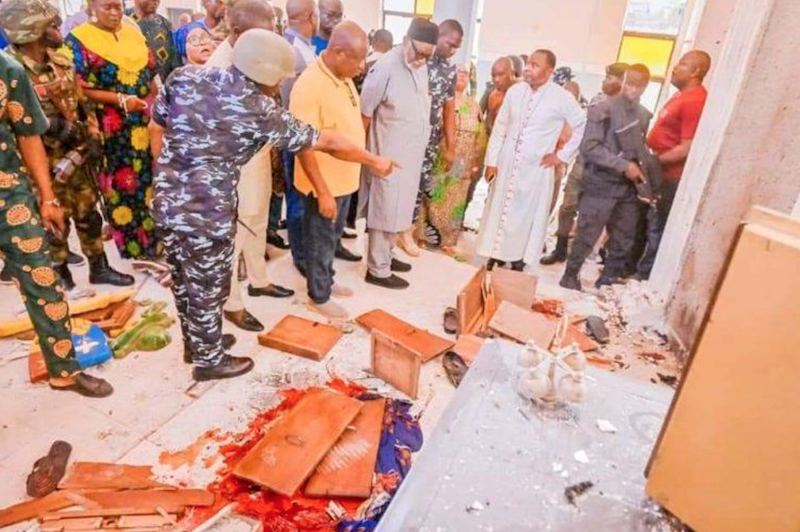
Oftentimes economic disparities and competition over resources intersect with religious differences, leading to conflicts. In many cases, marginalized communities may feel excluded or disadvantaged based on their religious beliefs, leading to resentment and animosity towards other groups.
The acting head of First Baptist Church in Abuja, Tom Takpatore, said politicians sometimes exploit religious differences for their own gain, using inflammatory rhetoric and promoting divisive ideologies to mobilize support, which further deepens sectarian tensions and exacerbates conflicts.
Takpatore added that the effect of interfaith dialogue has been largely insufficient to foster dialogue, understanding, and mutual respect between religious communities, contributing to the perpetuation of stereotypes and misconceptions.
“This lack of engagement hinders the building of trust and cooperation necessary for peaceful coexistence. Certain laws and policies may also favour one religious group over another, leading to feelings of marginalization and unequal treatment.
“Discrimination in areas such as education, employment, and political representation can fuel religious tensions and contribute to violations,” he said.
For example, indigenous Hausa Christian communities in Kano State reportedly face discrimination, denial of rights, and limited opportunities. They are often denied scholarships and employment opportunities and live in fear as second-class citizens due to their religious beliefs.
While both Muslims and Christians have been affected by religious persecution in Nigeria, according to available data, it is Christian communities that have faced the most significant persecution for their faith.
Christians in Nigeria have suffered targeted attacks, church bombings, abductions, and forced conversions, resulting in immense psychological trauma and loss.
As Nigeria continues to navigate the complex terrain of religion, it is crucial for all stakeholders to work collaboratively to ensure that individuals can freely express their religious beliefs without fear of discrimination or exclusion.
This investigative report reveals the alarming reality of religious violations in Nigeria, with a focus on the disproportionate impact on women and girls.
The case studies presented underscore the urgent need for the Nigerian government to address these violations, hold perpetrators accountable, and implement robust measures to protect the rights and freedoms of women and girls.
Only through decisive action can Nigeria begin to rectify the systemic injustices faced by its female population and pave the way for a society that upholds religious freedom, gender equality, and human rights for all.
This story was produced with the support of the International Center for Journalists (ICFJ), in partnership with Code for Africa.
